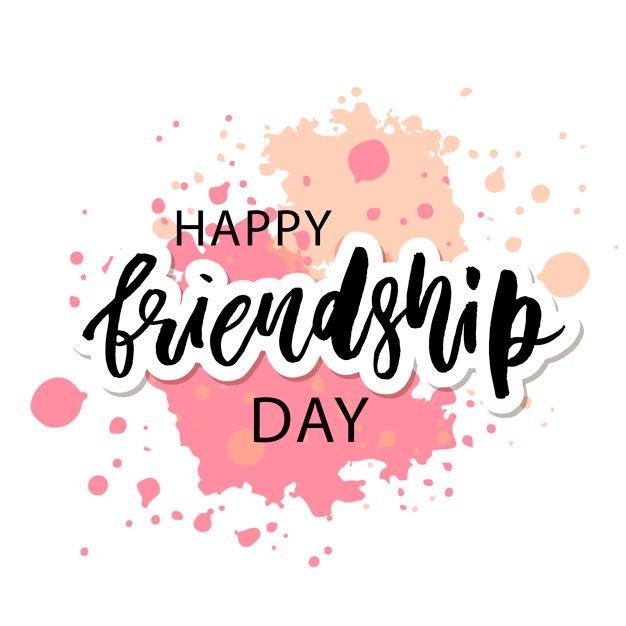7 Heartwarming Friendship Day Letters That Will Inspire You
Friendship is one of the most treasured human connections, and expressing it through Friendship Day letters has been a heartfelt tradition for generations. These letters serve as tangible expressions of love, gratitude, and appreciation, capturing emotions that words spoken in daily life often cannot fully convey. Writing or receiving a Friendship Day letter is more than just a gesture—it is a celebration of trust, loyalty, and shared memories.
- History of Friendship Day Letters
- Fascinating Facts About Friendship Day Letters
- Timeline of Friendship Day Letters
- Significance of Friendship Day Letters
- Friendship Day Letters and Daily Life
- Examples of Friendship Day Letters
- Frequently Asked Questions (FAQs) About Friendship Day Letters
- Wishing Inspired by Friendship Day Letters
- Important Points to Remember
- Conclusion: The Transformative Power of Friendship Day Letters
From handwritten notes to beautifully crafted cards, Friendship Day letters are timeless symbols of friendship that transcend age, culture, and distance.
History of Friendship Day Letters
The tradition of expressing friendship through letters can be traced back centuries:
Ancient Times: In early civilizations, friends and allies exchanged messages on papyrus, parchment, or handmade papers, often conveying loyalty, support, and affection.
Medieval Europe: Friends sent letters to maintain connections across long distances, especially among travelers, scholars, and soldiers.
19th and 20th Century: The popularity of postal services made letter writing accessible to the general population, allowing friends to maintain bonds through words.
Modern Era: Friendship Day letters became a staple of Friendship Day celebrations, with people using handwritten notes, greeting cards, and digital messages to convey heartfelt emotions.
The essence of these letters lies in their ability to capture personal emotions, memories, and sentiments in a way that becomes a cherished keepsake for years.
Fascinating Facts About Friendship Day Letters
Friendship Day letters can be handwritten or digital, but handwritten letters carry higher sentimental value.
They often include memories, jokes, inside stories, and expressions of gratitude.
Letters can strengthen emotional bonds and social connections.
Many people keep letters for years, turning them into treasured memories or mementos.
Writing a letter improves communication skills, emotional expression, and mindfulness.
Timeline of Friendship Day Letters
| Period | Event/Origin | Significance |
|---|---|---|
| Ancient Times | Papyrus or parchment messages exchanged | Expressing loyalty, support, and trust |
| Medieval Europe | Letters maintained friendships over long distances | Preserving connections despite travel or separation |
| 19th Century | Postal services made letter writing common | Enhanced accessibility and emotional sharing |
| 20th Century | Greeting cards and Friendship Day letters popularized | Strengthened cultural and social celebration of friendship |
| Modern Era | Digital letters, emails, and social media messages | Maintaining bonds in the digital age |
Significance of Friendship Day Letters
Friendship Day letters hold emotional, social, cultural, and psychological significance:
Emotional Significance: They allow friends to express feelings that may be hard to say in person, creating a deep emotional impact.
Social Significance: Letters strengthen friendship bonds, mutual respect, and trust.
Cultural Significance: They reflect the tradition of written communication, preserving personal and cultural histories.
Psychological Significance: Writing or receiving letters enhances happiness, reduces stress, and fosters emotional well-being.
Educational Significance: Letter writing improves writing skills, emotional intelligence, and self-expression.
Friendship Day Letters and Daily Life
Friendship Day letters influence daily life in practical, emotional, and social ways:
Strengthening Relationships: Sending a letter expresses appreciation and care, keeping friendships alive.
Emotional Release: Writing a letter allows reflection on feelings, gratitude, and shared memories.
Conflict Resolution: Letters can smooth misunderstandings or conflicts by communicating thoughtfully.
Creating Lasting Memories: Letters serve as keepsakes, reminding friends of shared experiences and emotions.
Promoting Mindfulness: Composing letters encourages thoughtfulness, patience, and introspection.
Examples of Friendship Day Letters
Heartfelt Letter: Express gratitude for friendship, recount memorable moments, and share future hopes.
Funny Letter: Include inside jokes, humorous anecdotes, and playful banter to make friends smile.
Inspirational Letter: Share motivational messages, support during tough times, and encouragement.
Personalized Letter: Incorporate photos, drawings, or handmade decorations for a unique touch.
Poetic Letter: Write in rhyme or verse, expressing emotions creatively and artistically.
Digital Letter: Send an email or social media message with personalized emojis, GIFs, or multimedia.
Long-Distance Letter: Maintain bonds when separated by distance, expressing longing, care, and love.
Frequently Asked Questions (FAQs) About Friendship Day Letters
Q1: What are Friendship Day letters?
A1: Friendship Day letters are written messages sent to friends on Friendship Day to express love, gratitude, and emotional connection.
Q2: Why are Friendship Day letters important?
A2: They strengthen friendships, preserve memories, and allow heartfelt emotions to be shared and remembered.
Q3: Can Friendship Day letters be digital?
A3: Yes, but handwritten letters often carry more sentimental value due to their personal touch.
Q4: How should I start a Friendship Day letter?
A4: Begin with a warm greeting, mention the occasion, and share personal feelings or memories that celebrate your friendship.
Q5: Can letters impact society?
A5: Yes. Writing and sharing letters encourages expressive communication, kindness, and appreciation, promoting stronger social bonds and empathy in communities.
Wishing Inspired by Friendship Day Letters
Friendship Day letters often inspire heartfelt messages:
“Happy Friendship Day! Your friendship has been a treasure, and I hope this letter reminds you how special you are to me.”
“Distance may separate us, but this letter carries my love, memories, and appreciation for our bond.”
“Thank you for being the friend who always listens, supports, and inspires me. This letter is just a small token of my gratitude.”
“Like the words in this letter, our friendship will endure, grow, and create memories for a lifetime.”
Important Points to Remember
Friendship Day letters symbolize love, loyalty, and gratitude.
They strengthen personal and social bonds.
Handwritten or personalized letters carry higher sentimental value.
Writing letters encourages emotional expression, mindfulness, and reflection.
Letters preserve memories and cultural traditions, inspiring society to cherish human connections.
Conclusion: The Transformative Power of Friendship Day Letters
Friendship Day letters are more than messages—they are expressions of the heart, symbols of trust, and bridges between emotions and memory. Whether handwritten, digital, poetic, or humorous, these letters celebrate friendship in a meaningful, timeless way.
In daily life, sending or receiving a Friendship Day letter strengthens relationships, fosters emotional well-being, and encourages thoughtful communication. It reminds us that friendship is a precious gift, worth expressing, nurturing, and preserving.
Ultimately, Friendship Day letters are life-enhancing tools, showing that sincere words and thoughtful gestures can transform relationships, create lasting memories, and promote a culture of appreciation, empathy, and human connection.
Friendship Day Letter Ideas
- Don’t write your letter on the paper of a notebook. Remember, you are writing a thoughtful letter for your best friend, not copying school notes! Therefore, choose a nice letter pad that has a small cute illustration on a corner.
- Begin on a light note, proceed towards a comic tone and finally end it with an emotional touch. You can also use emotional quotations to end your letter.
- If you like to use rhyming words for your letter, you can always write a short poem for your friend. Give it an appropriate title or just name it “For My Best Friend”. You can mention each other’s nicknames, fun moments or a special memory that you both particularly enjoy.
- End the letter on an emotional note and don’t forget to thank your friend for being there for you always, through the thick and thin of your life.
- You can always decorate your letter with glitter and colors. Draw out nice patterns on the sides of the paper as to form a frame. Make use of some glitter sporadically, in order to make it look a bit interesting.
- If you have a picture together, you can either scan it on the paper or stick it as it is. The picture should highlight a special moment together and bring fond memories of the time, when the photo was taken.
- If you don’t have a photograph, then draw a cartoon that looks like you and your friend. Make it funny and as attractive as possible. It should highlight a special moment that you have shared, such as cycling together, playing at the beach, a make-over, etc.
- Fold the letter nicely and put it in an envelope. You may also write something on the envelope, apart from the address of the recipient. To add to its overall appeal, spray a perfume on the envelope. Ensure that you post the letter on time.








